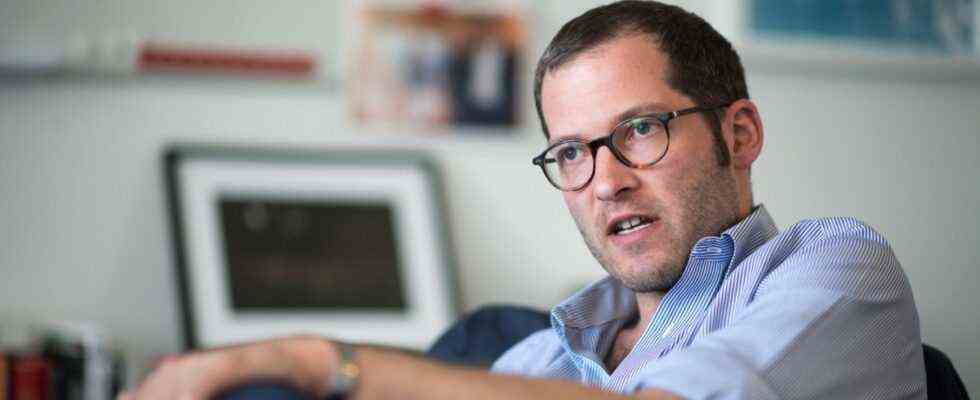The weekly newspaper The time has established itself in recent years as one of the top addresses for large confessional and confessional talks. That has not only, but a little, to do with the fact that those who confess and confess usually get away with it. The current issue now says on a double page a huge interview with Julian Reichelt, the killed editor-in-chief of image. In this case, the first question arises before reading – how would this conversation be tempered, where is the heating knob on the scale between the frosty star and the lavish level 5?
After surviving a compliance procedure in the spring, Reichelt will be with us in mid-October image then been gone after all. In the context of his resignation there was talk of affairs and abuse of power. The conversation in the Time is Reichelt’s first detailed account of the matter since leaving the Axel Springer Group.
Particularly interesting in this remarkable interview are Reichelt’s statements about Springer board member Mathias Döpfner, especially about the reporting of the mirrors about his person and the question of who and what actually is and wants to be a victim.
One after the other: At the end of Reichelt, Döpfner said he had not learned from his mistakes and lied to the management board even after the compliance process was completed. Reichelt now says that he “didn’t lie to Döpfner. That’s why I was very surprised at how surprised he said he was”. In addition, Reichelt says that Döpfner disposed of it “after twenty years of loyal work, ten of them in war zones” in “twenty minutes on the phone”.
Very surprised? Mathias Döpfner claims not to have known anything about Reichelt’s behavior.
(Photo: Kay Nietfeld / dpa)
On the mirrorswho had reported particularly aggressively about the cause (one of the headlines read: “Birds, encourages, fires”, the report became Banned by a court at the end of November), says Reichelt now that he is “the perfect example of how ideology has spread in editorial offices”, that the magazine “invented facts so that it fits into the worldview” and “invented all central quotations freely”. This fits into a zeitgeist, Reichelt diagnosed a “delusion to want to see people as victims”, and where there are victims, there is also a need for perpetrators.
In terms of media strategy, Reichelt has therefore opted for the slogan “Attack is the best attack”. In the reception of the suitably cool conversation, two things stand out. First, readers point out that it would be somewhat grotesque if of all people the former boss of image complains of having been publicly convicted and professionally damaged on only vague allegations. Second, however, the question arises whether the possibly justified criticism of the non-compliance with journalistic standards should go unnoticed just because it is expressed by someone whose previous house did not always comply with these standards itself.
Apparently, Julian Reichelt will not have to do without as a voice in this discussion. While his Twitter profile (“I’ll be back”) hardly leaves any room for interpretation, Reichelt says that too Time in the end, he wanted to continue “journalism for the masses” and seek “the social confrontation with the woke madmen”.

